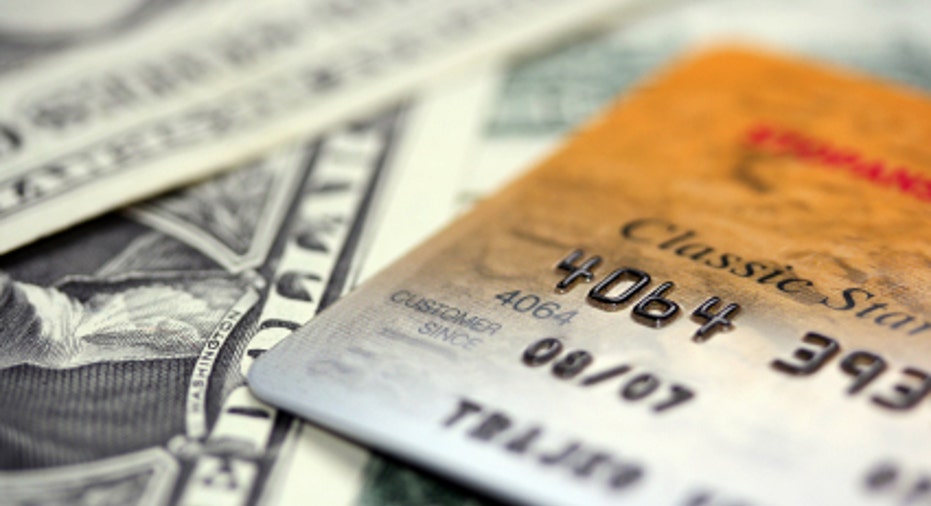Five Unintended Consequences of the Credit CARD Act

Whether you loved the idea of the Credit CARD Act of 2009 (full disclosure: I'm a fan), or you thought it was yet another overreaching law, with the two-year anniversary just behind us (it was May 22), it's become apparent to industry and personal finance experts that there have been unintended consequences to the passage of that legislation.
But as you'll see, some of these consequences haven't necessarily been all bad.
Higher interest rates.
Interest rates rose across the board for all types of revolving credit cards in the months leading up to the passage of the Credit CARD Act, and have remained at those elevated levels ever since. Of course, it's really not possible to know if credit card interest rates would have climbed anyway.
But according to IndexCreditCards.com, interest rates have indeed come up and stayed up, from a weighted average of 14% in early 2009 to 16.4% in December 2009, remaining above 16% ever since.
However, it's not like there are no low interest cards any more, because there are, such as the Chase Freedom Visa which currently starts at 9.99% APR.
Higher fees.
Since the Credit CARD Act placed strict limits on the fees that could be charged to consumers, it's no surprise that credit card issuers devised new ways to bring back some of the lost revenue from the Credit CARD Act coming into place. Foreign transaction fees, inactivity fees and minimum finance charges are all on the rise.
On the other hand, most of the fee hikes took place during the first year. The second year, not so much. Late fees have been tapering off recently. So the jury is still out here, and it may be that this unintended consequence won't be all that terrible. We can hope.
Less credit.
According to IndexCreditCards.com, the average credit card debt dropped to $3,752 in February 2010 from $4,013 in July 2009. Of course, that reduction in consumer debt is just as likely due to the sputtering economy as to credit issuers pulling back on the reins in the wake of the Credit CARD Act.
A related consequence is that while many credit cards have issued less credit and added new fees and high interest rates, many smaller banks have remained competitive by not going that route. This means more options for consumers, which is a good thing.
Non-working spouses may be denied credit.
This issue has gotten a lot of play in the press, and for good reason. Starting Oct. 1, if a non-working spouse applies for an individual credit card, the issuer can't consider household income in determining the ability to make payments. Only the applicant's own income can be considered.
What's the problem with that? Well, it makes it hard for a non-working spouse to develop an individual credit history, which could be a lifeline in case of separation, divorce or widowhood. A prepaid card is always an option. But that won't help the stay-at-home mom or dad build credit history. He or she could have their working spouse co-sign on a credit card, and then remove their name from the account, but if that happens, "potentially the card could be closed or the remaining party might be required to reapply," says Gail Cunningham, vice president of public relations for the National Foundation for Credit Counseling.
Another possibility, says David Lester, a Montreal-based financial coach and the author of "I Heart Money," is that "the working spouse could pay the non-working spouse as an employee. This option would allow them to get a card but then creates new complications for both parties when tax time approaches."
Cunningham sees more trouble if one of the partners in the marriage isn't fiscally responsible, saying, "Having a co-signer also carries the risk that the other party abuses the credit, and since both parties are responsible for the debt, both credit reports are tarnished, making it ever more difficult to obtain credit in the future."
More bankruptcies.
As anyone who gets a credit card statement knows, there is that box that tells you when the debt will be paid off if you just make the minimum payments, and when the debt will be retired if you pay X dollars in three years (or sometimes less, if the debt is fairly small).
Has this information helped people reduce their debt? Maybe not. Dennis Neibling, a counselor with the Consumer Credit Counseling Service of Oklahoma, theorizes that "instead of this realization opening people's eyes and encouraging them to pay more, some have found it discouraging and it pushed them into filing bankruptcy, as they saw themselves as too far gone to ever dig out."
Neibling may be on to something, given that during 2010 bankruptcies rose by 9% to 1.53 million, according to the American Bankruptcy Institute. On the other hand, the high unemployment rate and plunging home values surely had something to do with all of those bankruptcies as well.
The original article can be found at CardRatings.com:Five Unintended Consequences of the Credit CARD Act



















